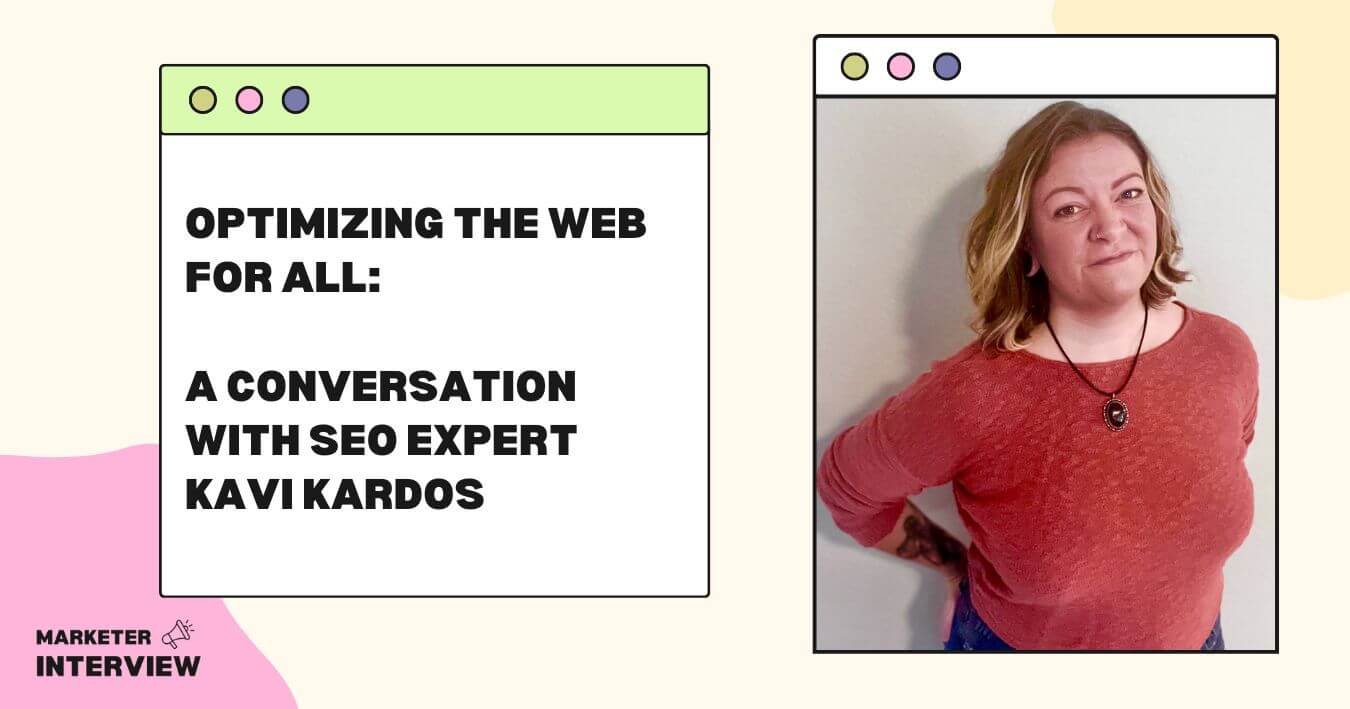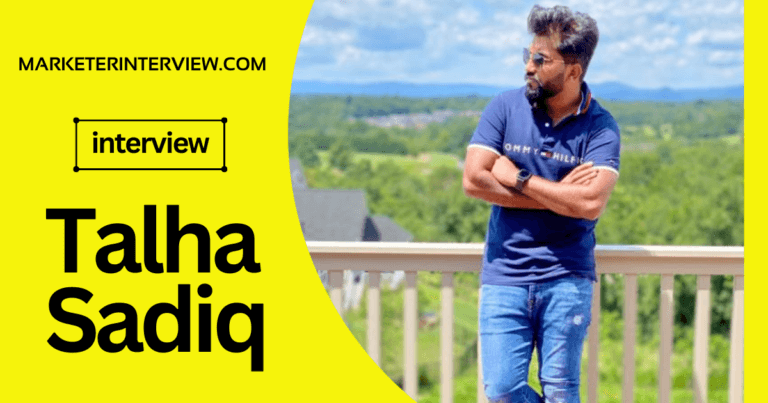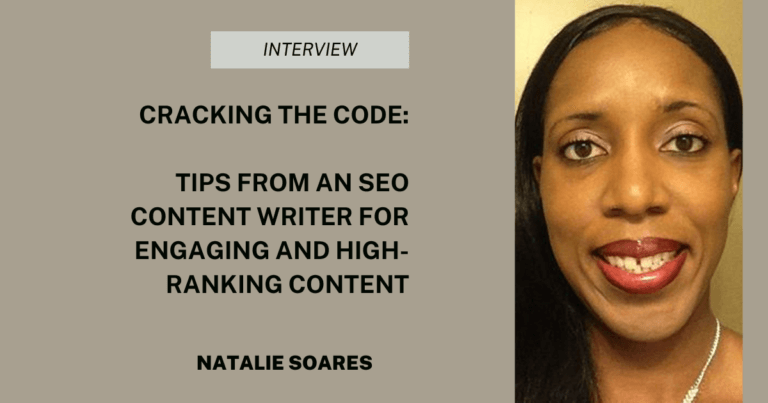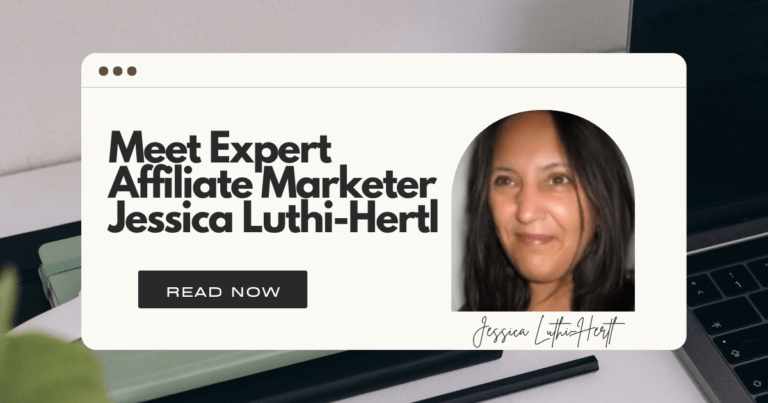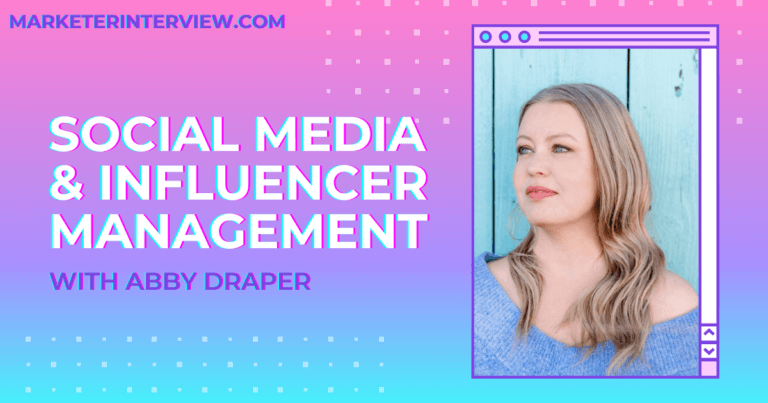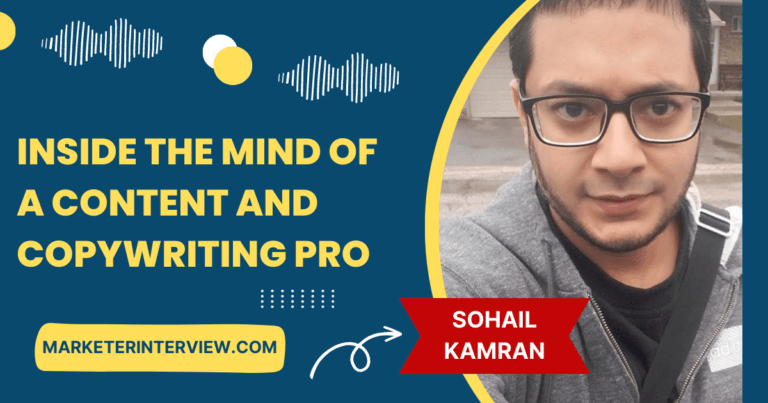Optimizing the Web for All: A Conversation with SEO Expert Kavi Kardos
Welcome to Marketer Interview, the go-to blog for insightful conversations with top marketers.
In today’s interview, we had the pleasure of speaking with Kavi Kardos, an accomplished SEO Director at Corporate Finance Institute.
With a diverse background in digital marketing and a passion for improving the web, Kavi is an international conference speaker, trainer, and strategy consultant.
Known for her expertise in SEO and digital experience, Kavi has spoken at prestigious events such as brightonSEO, Seattle Interactive, and the Revenue Marketing Summit.
Contents
- 1 Can you share with us your journey of entering the marketing field?
- 2 As an SEO Director, what are the key aspects you focus on when optimizing websites for search engines and improving digital experiences?
- 3 Could you elaborate on the role of holistic website strategy in achieving SEO success?
- 4 How do you approach information architecture and content management to ensure websites are well-structured and user-friendly?
- 5 With the ever-changing landscape of SEO, what are some recent AI innovations by Google Search that have caught your attention?
- 6 As an international conference speaker and trainer, what are the most common challenges marketers face when implementing SEO strategies?
- 7 Could you share a memorable success story where your SEO strategies significantly improved a company’s online presence and organic search rankings?
- 8 In your opinion, what are the essential tools and software should every SEO professional have in their arsenal? Are there any particular ones you rely on heavily?
- 9 How do you stay updated with the latest trends and developments in the SEO industry? Are there any resources, communities, or conferences you recommend for marketers?
- 10 Beyond SEO, are there any other areas of digital marketing that you find particularly fascinating or have expertise in?
- 11 Finally, is there a marketing professional you admire and would recommend for Marketer Interview to reach out to for our following interview?
Yes! Like so many others, I did not start my professional career with SEO in mind.
I have a BFA and an MS in publishing, which led me to early roles in content marketing once I realized how difficult it would be to make a career out of traditional publishing.
My first SEO-focused role was as a link builder for a software reviews company. I didn’t fall in love with link building, but I did fall in love with SEO’s balance of analytical and creative strategy. My father is a psychologist, and my mother is a visual artist, so I think that combination is in my blood.
As an SEO Director, what are the key aspects you focus on when optimizing websites for search engines and improving digital experiences?
My primary focus is always on the user.
Suppose you provide your users with an intuitive, genuinely helpful, and delightful digital experience. In that case, conversions will naturally flow from that experience, and search engines should naturally reward the structural and content optimizations you’ve performed with the user in mind.
Could you elaborate on the role of holistic website strategy in achieving SEO success?
Adopting a holistic website strategy means allowing digital experience concerns — like site architecture, conversion flow, SEO and user acquisition, etc. — to involve more teams and inform more decisions within your organization.
Instead of siloing the digital experience team away from other teams like product, customer experience, and people ops, a holistic strategy recognizes that all of those teams rely on the website for some key metrics.
It’s crucial to consider how frequently each team meets with digital experience and how much of a digital experience can impact each team’s roadmap.
How do you approach information architecture and content management to ensure websites are well-structured and user-friendly?
The most common issue I’ve encountered is that websites are so often conceived of, built, and expanded with no blueprint. This leads to folder structures and nav menus that don’t make sense, URLs are thrown into places they don’t belong, and messy or nonexistent internal linking strategies that leave orphaned pages all over the site.
Most often, the answer is to simplify. Huge websites, especially old ones, tend to have tons of pages and content they don’t need anymore. Consolidating those pages and flattening folder structure can go a long way toward user friendliness and crawl efficiency.
On a site of any size, ensure that every URL can answer the question, “What does this page do that no other page on the website does?”. It’s a great way to approach consolidation and to think about how pages should relate to each other within the navigation.
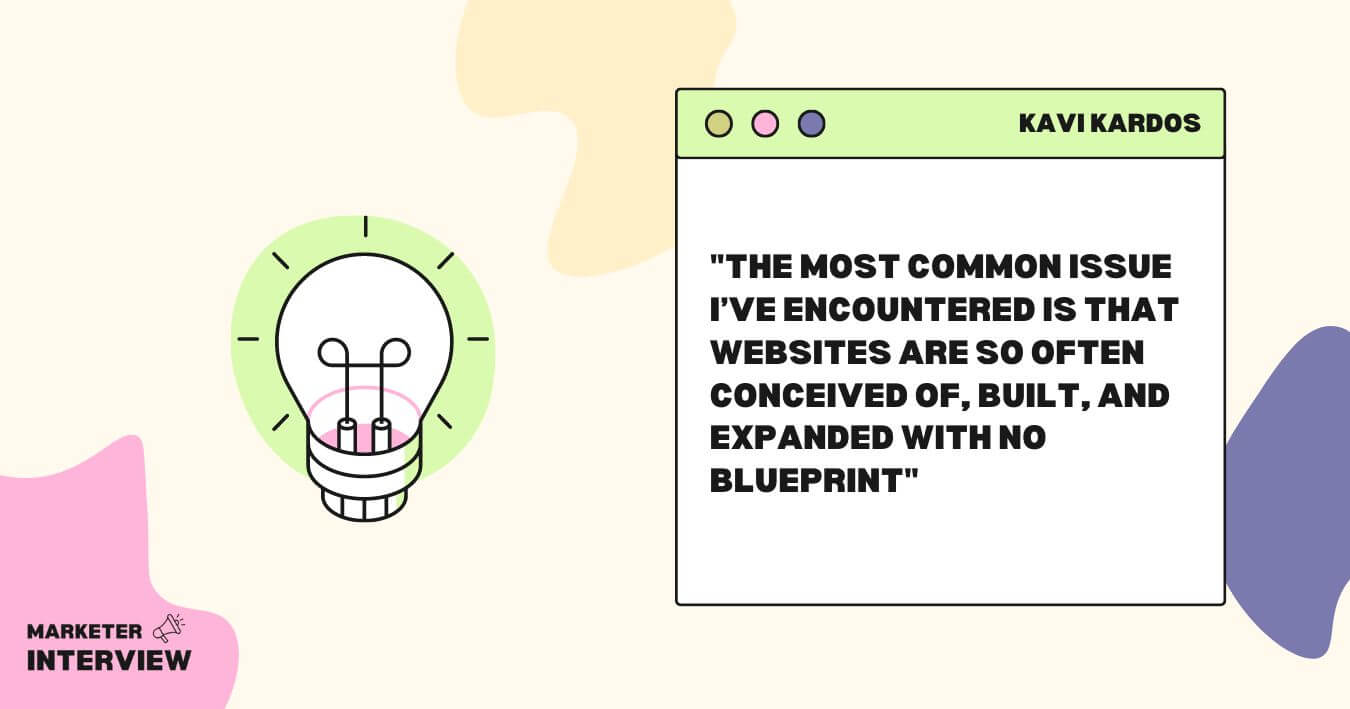
With the ever-changing landscape of SEO, what are some recent AI innovations by Google Search that have caught your attention?
When I got my early access to Google’s Search Generative Experience, I immediately started looking at the “ask a follow-up” prompts below the AI-generated answers to search queries related to our business.
When SGE rolls out fully, assuming the format remains roughly the same, I imagine we’ll start studying these follow-up prompts similarly to the way we used to study People Also Ask queries — as a way to generate ideas for related (albeit much longer-tail) topics we should cover if we’d like to be featured in Google’s citations.
My primary takeaway from the new SERPs is that relying on simple-answer, text-based, informational-intent content for organic traffic is officially a losing game.
Those who aren’t prepared to diversify content output and explore things like video, social, first-person expertise, and even more outside-the-box stuff are about to have a rude awakening.
As an international conference speaker and trainer, what are the most common challenges marketers face when implementing SEO strategies?
This comes from both my personal experience and a few recent industry studies.
A lack of internal buy-in and SEO education is the most common blocker to implementing SEO strategies. The agency or the in-house SEO could be brilliant and have a perfect strategy all laid out. Still, if their internal stakeholders aren’t bought in because they know nothing about SEO, that strategy will never get off the ground.
That’s why it’s vital that we preach holistic SEO and holistic digital experience — at almost every organization, every user, every team, and every employee will use the website. They should understand how and why it works.
When I present to marketing audiences, I always emphasize making full-team education and engagement a priority. To me, it’s non-negotiable.
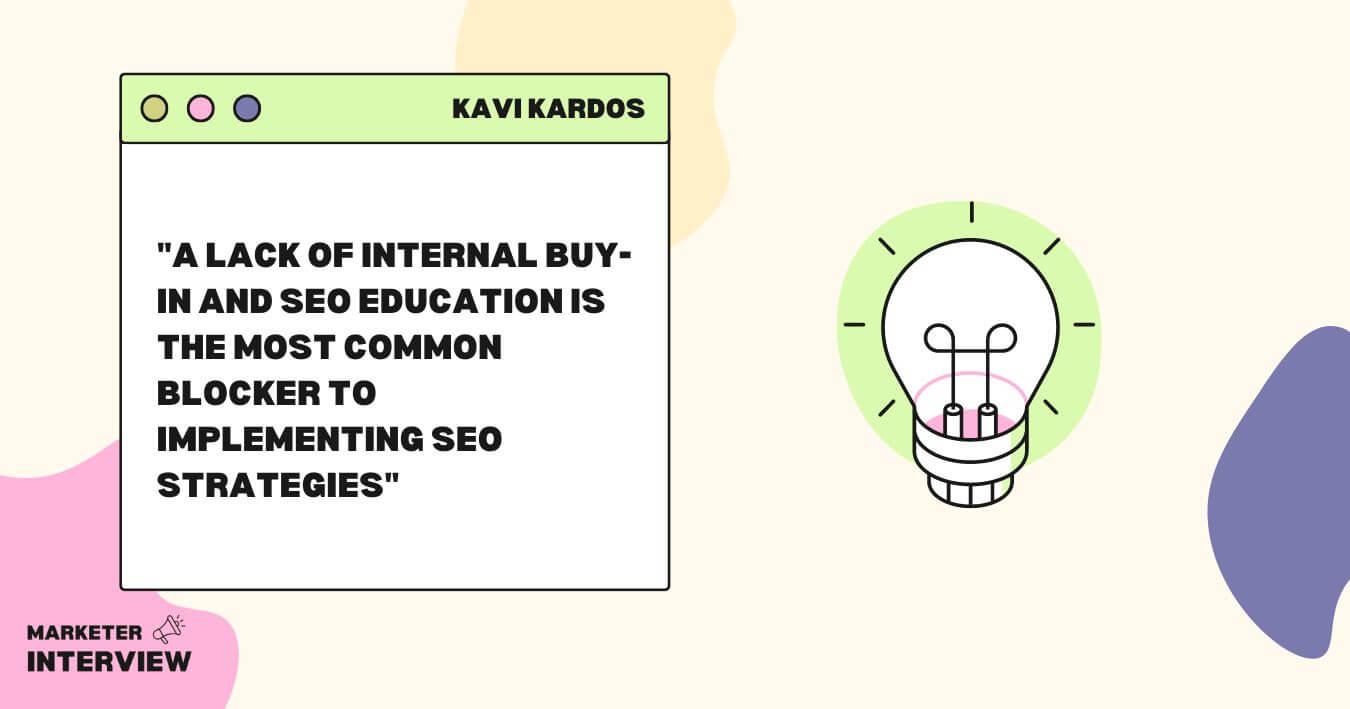
I worked for a cybersecurity company with an excellent value proposition but some very intimidating competitors a couple of years ago. They were growing their marketing team, and I became their first SEO strategist.
By implementing content and landing page best practices and performing an in-depth technical audit that uncovered issues with their site structure, I increased total organic traffic by 75% and the number of desirable indexed URLs by 100% within six months.
In your opinion, what are the essential tools and software should every SEO professional have in their arsenal? Are there any particular ones you rely on heavily?
Now that the changeover to GA4 is upon us and it’s not as terrifying (or as different from UA!) as some of us might have thought, there are no more excuses for not learning how to navigate it.
Every technical SEO worth their salt should know Screaming Frog and the advanced ones should know how to use a log file analysis tool (I like Splunk) for deep sleuthing.
The tool I spend the most time on is Google Sheets. Nothing has given my marketing career more of an efficiency boost than learning VLOOKUP, SUMIFS, and pivot tables.
How do you stay updated with the latest trends and developments in the SEO industry? Are there any resources, communities, or conferences you recommend for marketers?
I fully understand anyone not wanting to be on Twitter at this point, but the truth is that SEO Twitter is still happening, and it’s where I come across a lot of my industry news and chatter. I use Tweetdeck and a curated SEO list and keep it open all day.
For conferences, there are so many, but there’s no beating brightonSEO — and they’ve just announced their first dates in the US! The atmosphere there is unlike any marketing conference I’ve ever been to. You have to experience it to believe it.
If you’re female-identifying, the Women in Tech SEO community is a must. It’s run by Areej AbuAli, one of the best in the industry, and the wealth of resources the community provides (including the vibrant Slack channel) has been invaluable to me. It’s how I’ve learned about almost every speaking, writing, podcast, and mentorship opportunity in the past year.
Beyond SEO, are there any other areas of digital marketing that you find particularly fascinating or have expertise in?
Even though my resume says SEO top to bottom, I consider myself a digital strategist more broadly.
I’m interested in psychology first and foremost, so I like thinking about how people interact with websites and why, how brands train user behavior and vice versa, and how shifting social climates have shaped the internet over time.
Finally, is there a marketing professional you admire and would recommend for Marketer Interview to reach out to for our following interview?
Griffin Roer and/or any of the SEOs at Uproer. They’re an up-and-coming agency out of Minneapolis/St. Paul area.
They’re changing the game regarding shaping client engagements and are publishing increasing thought leadership content on SEO strategy and agency management.
